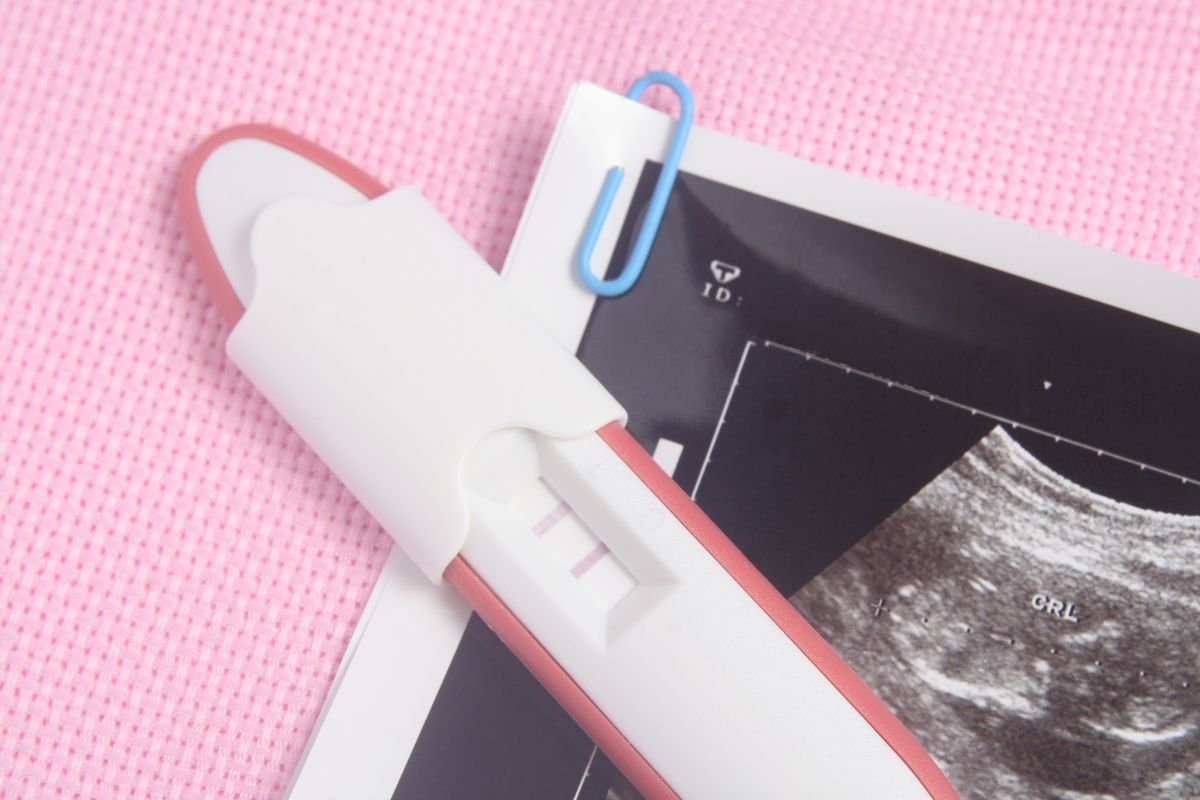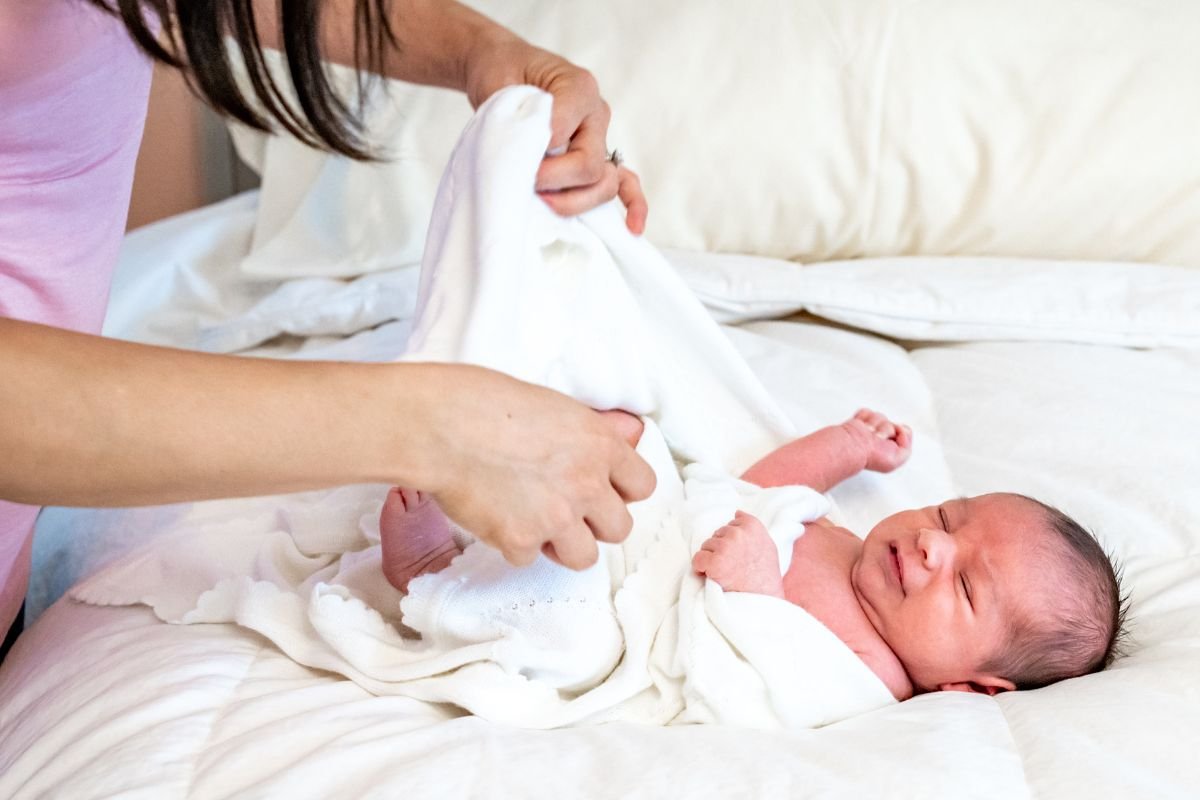Pregnancy tests are one of the most important diagnostic tools for women who are trying to conceive or suspect they may be pregnant. However, taking a pregnancy test can be an anxious and confusing experience, especially if the results are not clear-cut or expected. Did you know that the first home pregnancy test was introduced in the 1970s? Since then, pregnancy tests have come a long way, with many now offering results as early as a week after a missed period.
Despite the technological advancements, interpreting pregnancy test results can still be a complex process. False positives, faint lines, and conflicting results can all lead to confusion and uncertainty. For example, have you ever heard of a “chemical pregnancy”? This term refers to a pregnancy that is detected by a pregnancy test but does not result in a viable pregnancy.
In this article, we will explore the accuracy, dos and don’ts, and potential pitfalls of pregnancy testing. From discussing when to take a pregnancy test and what not to do before taking one, to understanding unusual test results, we will cover everything you need to know to make sense of your pregnancy test results.
We will also delve into common misconceptions about pregnancy tests, such as the belief that a faint positive means a less viable pregnancy, or that a positive test result at three weeks necessarily means twins. So sit back, relax, and get ready to become a pregnancy test expert!
Table of Contents
When Is the most Accurate Time to Take a Pregnancy Test?
The most accurate time to take a pregnancy test is after you have missed your period. This is because hCG levels continue to rise rapidly during early pregnancy, and waiting until after your missed period can ensure that there is enough of the hormone in your urine for the test to detect.
While some pregnancy tests claim to be able to detect hCG as early as six days before your missed period, these results may not be accurate for everyone. In general, it is best to wait until after your expected period before taking a home pregnancy test.
What Not To Do Before Taking A Pregnancy Test?
Before taking a pregnancy test, it’s important not to drink too much fluids or consume diuretics such as coffee or tea as this could dilute urine and affect the accuracy of the test results. Additionally, taking certain medications such as fertility drugs or medications containing hCG could also produce false-positive results.
It’s also essential that you follow instructions carefully when using home-based testing kits so that you don’t receive inaccurate results. Waiting too long before checking for results or disrupting urine flow while taking the test can also affect its accuracy.
Is It Normal to Get a Faint Positive at 4 Weeks?
A faint positive result on a pregnancy test can be an indicator of early pregnancy. At four weeks, the levels of hCG are still low, so having a faint positive result is normal. However, it’s important to keep in mind that not everyone will have a positive test result at this stage, and some may not until several weeks later.
When Should I Test Again If I Get A Very Faint Positive?
If you get a very faint positive on a pregnancy test, it’s recommended that you wait at least 48 hours before taking another one. This is because hCG levels increase significantly every day during early pregnancy.
Taking another test after 48 hours helps ensure that there is enough hCG present to produce a definitive result. If you are still unsure about your results after taking multiple tests or feel like something might be wrong with your pregnancy, don’t hesitate to talk with your healthcare provider for professional support and advice.
How Long Does a Positive Line Stay on a Pregnancy Test?
When you take a pregnancy test, the result (whether positive or negative) will appear quickly. A positive result may show as a pink, blue, or purple line depending on the type of pregnancy test you use. Once this result is present, it should remain visible for at least 48 hours.
If you are unsure of your result or it disappears after 48 hours then it would be wise to retake the pregnancy test to ensure accuracy.
How Many Pregnancy Tests Should I Take if Positive?
If you have taken a pregnancy test and the results are positive then there is no need to take additional tests. A home pregnancy test is just as accurate as a blood or urine-based test conducted by your doctor and should produce the same results if done correctly. It is normal to want to double check any kind of diagnosis but taking multiple tests does not increase your chances of accuracy in this case.
How Strong Should a Pregnancy Test Be at 4 Weeks?
At four weeks into your pregnancy, most home pregnancy tests will be able to detect human chorionic gonadotropin (hCG), which is produced when an egg has been fertilized and implanted in the womb’s lining. However, hCG levels vary from person to person so some tests may take longer than others before giving an accurate result so patience is key here!
Does the Darkness of a Pregnancy Test Matter?
The darkness of the line indicating a positive result on a home pregnancy test doesn’t matter; either dark or faint lines indicate that hCG is present in your body and therefore that conception has occurred – regardless of how dark or faint it appears! That being said, if there isn’t even one line which indicates any form of ‘positive’ then this would suggest that conception hasn’t happened yet so bear this in mind when looking at your results!
Why Is My Positive Pregnancy Test Not Getting Darker?
It is entirely normal for there not to be any significant change in darkness between two consecutive days when taking home pregnancy tests – particularly towards earlier stages (before 8-10 weeks) where hCG levels can fluctuate quite significantly from day-to-day.
As long as there was sufficient hCG present for initial detection over two consecutive days then chances are everything looks fine – monitoring changes overtime however might give more clarity regarding any potential complications but only your healthcare professional will be able make such assessments accurately.
How Many Weeks Pregnant Are You When You Get a Positive Test?
The answer to this question varies from woman to woman. Most pregnancy tests are designed to detect the presence of human chorionic gonadotropin (hCG), a hormone produced by the placenta after implantation occurs. This typically happens between 6 and 12 days after ovulation, but can vary based on a woman’s menstrual cycle.
If you get a positive pregnancy test result, it is safe to assume that you are at least a few weeks pregnant. However, the exact number of weeks will depend on when you ovulated and when implantation occurred. It is important to remember that a positive pregnancy test does not give an exact date of conception or due date.
Does a Positive Pregnancy Test at 3 Weeks Mean Twins?
A positive pregnancy test at three weeks does not necessarily mean that you are carrying twins. Even though twins can occur during early stages in pregnancies, most twin pregnancies will not be detected until closer to week 12 when they can be seen during an ultrasound scan.
Why did I get a Positive Pregnancy Test and then 2 Negatives?
If you’ve taken a pregnancy test that was positive and then two follow-up tests are negative, it can understandably be confusing. This can often happen if the initial test was taken too soon or the first test was not accurate. If you take the test too soon after conception, there may not have been enough time for your body to build up a high enough amount of hCG to register on the pregnancy test.
It is important to wait until two weeks after conception before taking any type of pregnancy test for accuracy purposes. If you’ve waited at least two weeks since conception, it is suggested that you retest with another home urine pregnancy test or visit your doctor for more accurate testing options such as a blood sample or an ultrasound.
Can You Have a Negative Pregnancy Test but No Period?
Yes, it is possible to have a negative pregnancy test yet still experience no period. This could be due to many different factors including stress, hormonal imbalances, excessive exercise or changes in diet.
Many women also find themselves experiencing irregular periods as they get older due age-related shifts in hormones which can delay menstruation cycles by days or even weeks sometimes. Furthermore, it is not uncommon for some women to miss their periods due to early menopause or Polycystic Ovary Syndrome (PCOS).
To determine the cause of missed periods it is best practice to speak with your healthcare provider so they can help evaluate what might be causing menstrual disruptions and provide better understanding on whether you should retest with another home urine pregnancy test or proceed with further medical testing such as an ultrasound at your doctor’s office.
Can a UTI Cause A False Positive Pregnancy Test?
A urinary tract infection does not cause false positive results on pregnancy tests; however it could lead to false negatives depending upon how far along you are in your cycle when tested and how diluted your urine may become from drinking excess fluids prior testing. Too much liquid intake prior testing can dilute your hCG levels which may lead inaccurate results on urine tests where subsequent readings may come back negative even if you are pregnant.
The most accurate way determine if there has been an incorrect reading from home urine tests would be performing followup lab work with either a blood sample ovarian ultrasound at your doctor’s office for further evaluation of possible hCG levels within the body that contribute towards false negative readings when taking home pregnancy tests alone.
Why did I get a Positive Pregnancy Test and then 2 Negatives?
If you’ve taken a pregnancy test that was positive and then two follow-up tests are negative, it can understandably be confusing. This can often happen if the initial test was taken too soon or the first test was not accurate. If you take the test too soon after conception, there may not have been enough time for your body to build up a high enough amount of hCG to register on the pregnancy test.
It is important to wait until two weeks after conception before taking any type of pregnancy test for accuracy purposes. If you’ve waited at least two weeks since conception, it is suggested that you retest with another home urine pregnancy test or visit your doctor for more accurate testing options such as a blood sample or an ultrasound.
Can You Have a Negative Pregnancy Test but No Period?
Yes, it is possible to have a negative pregnancy test yet still experience no period. This could be due to many different factors including stress, hormonal imbalances, excessive exercise or changes in diet.
Many women also find themselves experiencing irregular periods as they get older due age-related shifts in hormones which can delay menstruation cycles by days or even weeks sometimes. Furthermore, it is not uncommon for some women to miss their periods due to early menopause or Polycystic Ovary Syndrome (PCOS).
To determine the cause of missed periods it is best practice to speak with your healthcare provider so they can help evaluate what might be causing menstrual disruptions and provide better understanding on whether you should retest with another home urine pregnancy test or proceed with further medical testing such as an ultrasound at your doctor’s office.
Can a UTI Cause A False Positive Pregnancy Test?
A urinary tract infection does not cause false positive results on pregnancy tests; however it could lead to false negatives depending upon how far along you are in your cycle when tested and how diluted your urine may become from drinking excess fluids prior testing. Too much liquid intake prior testing can dilute your hCG levels which may lead inaccurate results on urine tests where subsequent readings may come back negative even if you are pregnant.
The most accurate way determine if there has been an incorrect reading from home urine tests would be performing followup lab work with either a blood sample ovarian ultrasound at your doctor’s office for further evaluation of possible hCG levels within the body that contribute towards false negative readings when taking home pregnancy tests alone.
Can a pregnancy test be positive and not be pregnant?
Seeing a positive pregnancy test when you’re not expecting it can be a shock. But did you know that false positives are not as rare as you might think? While it may seem impossible to have a positive result without being pregnant, there are several reasons why this can happen.
One common cause of false positives is an early miscarriage or chemical pregnancy. These occur when a fertilized egg implants in the uterus but fails to develop properly. The body still produces the hormone hCG, which is what pregnancy tests detect, but the pregnancy ends before it can be detected on an ultrasound.
Another possible explanation for a false positive is an ectopic pregnancy. This occurs when the fertilized egg implants outside of the uterus, usually in one of the fallopian tubes. Ectopic pregnancies are dangerous and require immediate medical attention.
Although rare, certain medical conditions can also cause false positives on pregnancy tests. These include ovarian cysts and tumors that produce hCG, as well as some types of cancer.
How Common Are False Positives?
While false positives are possible, they are not very common. Most home pregnancy tests have an accuracy rate of around 99%, meaning that only about 1% of tests will give a false positive result.
However, certain factors can increase the likelihood of a false positive. Using expired or faulty tests can lead to inaccurate results. Certain medications such as fertility drugs and those containing hCG can also interfere with test results.
It’s important to follow instructions carefully when taking a pregnancy test and to read the results within the recommended time frame to avoid confusion or misinterpretation.
Can Three Positive Results Be Wrong?
It’s unlikely for three separate tests to all give false positive results, but it’s not impossible. If you’ve taken three home pregnancy tests and all were positive, it’s best to make an appointment with your healthcare provider to confirm the result with a blood test or ultrasound.
It’s also important to note that a positive pregnancy test does not guarantee a viable pregnancy. Miscarriages and ectopic pregnancies can still occur even after a positive test result. Early prenatal care is crucial for monitoring the health of both the mother and the developing fetus.
In conclusion, understanding pregnancy tests is essential for any woman who is trying to conceive or suspect she may be pregnant. With the right knowledge and approach, taking a pregnancy test can be a straightforward and informative process.
From knowing when to take a test to interpreting the results correctly, we hope this article has provided you with the necessary tools to navigate the world of pregnancy testing with confidence. Remember, if you ever feel unsure or confused about your pregnancy test results, seek medical advice from a trusted healthcare professional.



